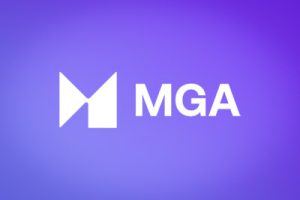
In line with industry trends for active engagement in addressing current social and environmental issues, the Malta Gaming Authority (MGA) has launched the Environmental, Social and Governance (ESG) Code of Good Practice for the remote gaming sector.
self-regulation tool
 He ESG Code provides a tool to help remote gaming companies choose the best social and environmental practices Self-regulation process. Although the ESG process is voluntary, it is strongly recommended for the sector as the proposed adoption of ESG practices will demonstrate this Licensee engagement MGA with sustainable operations for everyone involved in the remote gaming sector.
He ESG Code provides a tool to help remote gaming companies choose the best social and environmental practices Self-regulation process. Although the ESG process is voluntary, it is strongly recommended for the sector as the proposed adoption of ESG practices will demonstrate this Licensee engagement MGA with sustainable operations for everyone involved in the remote gaming sector.
During the press conference MGA CEO Carl Brincat reportedly said: “The MGA has always strived to be at the forefront of innovation and regulatory progress. We have worked to not only monitor the gaming industry, but also nurture it to create a space in which operators can thrive, while ensuring that the well-being of society remains paramount. Our ESG Code represents our commitment to this.”
The Minister of Economy, European Funds and Land, Silvio Schembri, reportedly commented on this: “All companies should adopt tools to reduce risk and successfully transform, and when it comes to remote gaming, one of the tools is the use of ESG metrics.”
The minister added: “The ESG Code will serve as a self-regulatory tool, helping remote gaming companies align with best practices and remain able to effectively meet the changing expectations of key stakeholders in the industry.”
Features of the ESG Code
The creation of the ESG Code took place in several phases, including the peer review and research phase, interviews with stakeholders and consultations with licensees, to ensure that the ESG Code fully addresses the social and environmental concerns of industry stakeholders.
The code includes three categories: Environmental, social And guideto identify a total of 19 ESG topics and provide effective guidance to remote gaming companies to ensure effective reporting practices.
The MGA classifies these reports into Level 1 and Level 2 reports depending on the level of reporting exercised by the companies. To this end, the ESG Code offers companies a flexible approach to complying with basic standard requirements and optionally disclosing their respective social and environmental practices.
No specific goals have been set for ESG reporting, but the focus is on the reporting process itself. Companies that report in accordance with this code receive the MGA ESG Code seal of approval, which recognizes companies that are committed to ESG. The seal distinguishes between Level 1 and Level 2 reports.
ESG reporting process
The Code is submitted to regulators on a voluntary basis and separately from other ESG disclosures. Submissions will be treated confidentially and will be available via an MGA online platform. The ESG reporting schedule will follow the fiscal year reporting and is expected to be introduced in 2023, with the submission deadline set third quarter of 2024.
Spring: “MGA publishes voluntary ESG code of good practices”. European gaming. November 13, 2023













